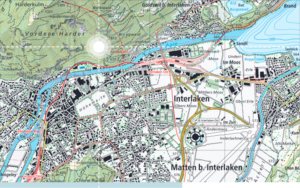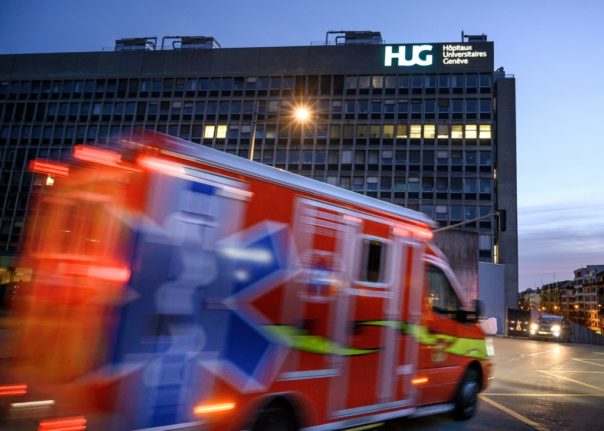Winter is making its comeback in Switzerland
The mild, springlike temperatures that prevailed throughout the country in the last two weeks will soon be replaced by cold weather, according to the forecast of Federal Office of Meteorology and Climatology (MeteoSuisse).
From Saturday, March 6th , snow and frosty conditions are expected along the northern slope of the Alps and on the plains in some regions.
Après une absence prolongée fin février, le #gel fait son retour de manière (presque) généralisée en plaine pour le premier jour du #printemps météorologique. Des températures minimales légèrement inférieures à la norme 1981-2010 pour un 1er mars. pic.twitter.com/MYCAbWy4UR
— MétéoSuisse (@meteosuisse) March 1, 2021
READ MORE: 18 degrees and sunshine: Warm weather predicted for Switzerland this weekend
A treasure trove for map enthusiasts
The Federal Office of Topography (Swisstopo) is making is making its digital national maps available free of charge for download on its website.
Included are historical maps, aerial images, landscape models, aeronautical maps, and geological data.
There are also over 850 datasets on a wide range of topics on the map viewer of the Swiss Federal Geoportal.

swisstopo
Several hundred people caught coronavirus at Geneva hospital
An estimated 500 patients at Geneva’s university hospitals (HUG) had been infected with Covid during the second wave of the pandemic.
This figure is based on the number of people who tested positive six days after their hospitalisation.
HUG said it implemented measures to prevent the spread of Covid infections among the patients, and such incidents “have all but disappeared in the past three weeks”.
Since October, 4,000 coronavirus patients have been treated at HUG. About 10 percent of them died, but not necessarily from complications of Covid-19.
New twice-weekly flights between Geneva and Belgrade
The Serbian national airline, air Serbia, announced that it would fly to Geneva twice a week, on Mondays and Fridays.
Tickets are offered from 52 euros, with an additional 50 percent discount on children’s fares.
A negative Covid test is required for arrivals to Serbia, and travellers from Serbia to Switzerland must self-quarantine for 10 days.
Hundreds in Luzern protest against suspension of corona-skeptic doctor
Some 350 protesters, most of whom didn’t wear masks, demonstrated in front of cantonal offices in support of a local physician accused of “seriously violating his professional duties”, authorities said.
Dr. Andreas Heisler temporarily lost his license because he reportedly didn’t wear a mask while treating patients, and routinely issued waivers from the use of the mask to anyone who requested it. He also “frightened the population with unfounded claims about the coronavirus vaccination”, Luzern’s health officials said.
If you have any questions about life in Switzerland, ideas for articles or news tips for The Local please get in touch with us at [email protected]



 Please whitelist us to continue reading.
Please whitelist us to continue reading.
Member comments